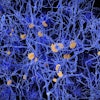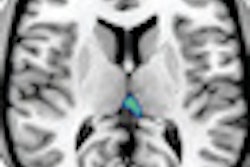MR images of the brain could expand the number of stroke patients eligible for a potentially lifesaving treatment, according to a new study published online and in the December issue of Radiology.
Some patients who suffer an acute ischemic stroke can be treated with tissue plasminogen activator (tPA), which dissolves the clot and restores blood flow. However, the clot-busting drug can only be administered within four and a half hours of the onset of a stroke. When administered beyond that time, the drug may cause bleeding in the brain.
In the study, lead researcher Catherine Oppenheim, MD, PhD, professor of radiology at Université Paris Descartes in France, and colleagues reviewed data from consecutive patients with acute ischemic stroke treated at Sainte-Anne Hospital in Paris between May 2006 and October 2008. The time of stroke onset was well-defined in all patients and each underwent MRI within 12 hours.
The 130 patients in the study included 77 men and 53 women, with a mean age of 64.7 years. Of those subjects, 63 patients underwent MRI within three hours of stroke onset and 67 were imaged between three and 12 hours after stroke onset.
Radiologists analyzed different types of MRI data on the patients, including fluid-attenuated inversion recovery (FLAIR), diffusion-weighted imaging (DWI), and apparent diffusion coefficient (ADC) ratios. Using the MRI data alone, they were able to predict with greater than 90% accuracy which patients had experienced stroke symptoms for longer than three hours.
Oppenheim said that when the time of stroke onset is unknown, MRI could help identify patients who are highly likely to be within the three-hour time window when tPA is proven effective and approved for use. Using MRI to determine the duration of a stroke also could change the way stroke is managed in the emergency setting.
Related Reading
Study finds diffusion-weighted MRI tops CT in diagnosing stroke, July 12, 2010
Volume helical shuttle CT perfusion identifies stroke patients, April 20, 2010
Resting fMRI exam may predict stroke and brain injury outcomes, March 30, 2010
MRI links silent stroke to kidney failure in diabetics, February 1, 2010
MRI and CT findings comparable in stroke patients, March 9, 2007
Copyright © 2010 AuntMinnie.com


.fFmgij6Hin.png?auto=compress%2Cformat&fit=crop&h=100&q=70&w=100)





.fFmgij6Hin.png?auto=compress%2Cformat&fit=crop&h=167&q=70&w=250)











